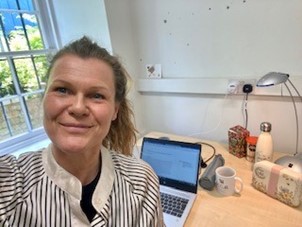

Little is known about the content of meetings between formerly imprisoned persons and probation staff following imprisonment. This blogpost highlights lived experiences of these meetings, from the perspectives of persons who recently returned to the community. Not surprisingly, the interaction contributed to feelings of being captured in freedom. But above all, in these contexts, the staff was perceived as treasured safe havens.
Some people walk out of Norwegian prisons free as birds. Others must still serve outside the walls. When sentences continue following incarceration, through electronic monitoring, home detention, drug rehabilitation, or early release on parole, the probation services are responsible for the implementation. As employees in the Correctional Service, probation staff shall facilitate positive change for resettling persons through regular meetings during this implementation. Even though these meetings and conversations happen to be experienced as restrictive by returning citizens, they are often also shown to be valuable.
Insight into the meetings with probation staff is drawn from 19 interviews with 13 persons shortly after their transfer to society. They sometimes presented interaction with staff as frustrating. Some of them pointed out their disappointment at a discrepancy between their longing for help and their experience of control from staff. This was particularly evident in the first period after imprisonment, as the dialogue reminded them of their time in prison. They felt unfree despite their return to society.
During their last part of probation, participants also greatly appreciated the conversations with staff and wanted them to continue. However, the ambivalence of this period became evident as at the same time they were pleased that their sentence was nearing its end.
Despite the frustrating and ambivalent potential of the dialogue, meetings were oftentimes presented as valuable and supportive. Through interaction with staff, participants were reined in and encouraged to take practical steps away from crime. Conversations about the contributing circumstances of the offence, and about how the offence affected their self-concepts, were highly appreciated. As the participants faced challenges and barriers in their re-entry, dialogue and support from staff became evident. Based on this, staff sometimes appeared as long-awaited, safe conversation partners for distressing topics that imprisonment had often put a lid on.
Support for positive change and belonging seemed to take place within sustained relationships, where staff were perceived as caring, appreciative and thought-provoking. These relational bonds showed to evolve over time and helped to meet expected and unexpected obstacles for resettlement. This facilitated an appreciation of staff as stepping stones and safe havens during troubling transitions to the community.
Background
The blog post is based on the paper ‘The valuable conversation following release’, presented at the NSfK Research Seminar in Helsinki (2023), and the article ‘Spotlighting the probation meeting – Lived experiences of desistance supporting interaction following imprisonment’
Read about the research project at Ferdigsonet.com.
About the author

Sylvia Koffeld-Hamidane is a sociologist and senior advisor at the University College of Correctional Services in Norway. She recently submitted her PhD thesis Troublemakers, firefighters and safe havens – Lived experiences of staff support for desistance during resettlement at the University of South-Eastern Norway.
